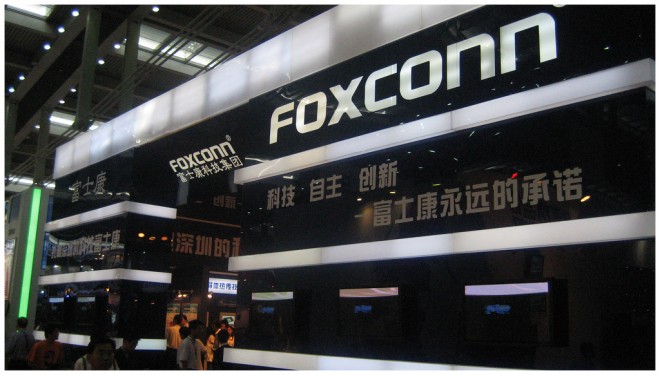HP Partners With Foxconn To Make Low-Cost Servers For Cloud Data Centers
3 min read
Hewlett-Packard, a world-known information technology corporation, is collaborating with Taiwan’s manufacturing giant, Foxconn, which is popular around the globe for making Apple’s iPhone, in order to break into the developing market of cheap servers for cloud data centers.
The hefty pricing plans offered by cloud service providers are due to the expensive servers they own. However, due to greater competition in the market, the renowned cloud service providers such as Google, Microsoft, Amazon and Dropbox are forced to lower down their prices and as a result, there is a growing potential to build low-cost servers for the data centers.
The server business has not grown too much around the world in recent times; however, servers for cloud data centers have been an exception, especially if the hardware is inexpensive and is designed to match the requirements of big cloud computing companies.
With HP’s immense experience in the computer industry and Foxconn’s massive manufacturing operations, the two companies aim at coming up with specialized servers for large-scale cloud service providers.
In the past, popular server manufacturers like IBM and HP struggled to achieve sustainable success in selling servers for cloud data centers, as many companies were directly buying the hardware from Asian makers such as Wistron and Quanta, cost being the obvious reason.
However, HP has surely enhanced its chances of reviving its server sales by partnering with one of the leading contract manufacturers of the globe and to make matters more promising, the two companies have already been successfully working in tandem for some time now, as Foxconn makes ProLiant servers for HP, apart from various products like phones, tablets, PCs and TVs for various vendors.

Foxconn is establishing itself as a server maker and desires to flourish in this business as it has a better potential than consumer electronics. However, the Taiwanese company was emerging as a threat for HP and the Palo Alto based organization has played it smart by making Foxconn its ally.
The vice president of Gartner, Andrew Butler, who keeps a keen eye on the world of technology, also believes the same. According to him, established hardware vendors naturally charge a lot more, but in recent times such expensive brands have been severely challenged by some of the Asian companies. He thinks, partnering with Foxconn is a strategy by HP to deal with this situation.
Butler further added, if HP can prevent any overlapping of its own server products, it could turn out to be an extremely wise move.
HP has made it clear that it will continue to sell Moonshot and ProLiant servers and the jointly made gear will be complementary to these two products.
The joint venture will take effect from May 1 and while most clauses of the contract have not been made public, it is evident that the servers for cloud data centers will be produced by Foxconn and the product will be supported, marketed and sold by HP.
Developing cheaper cloud servers should not be a difficult task for this partnership, especially in the presence of cheaper labor in Taiwan as compared to the US. The initial products of this collaboration are likely to be made available in markets by the end of 2014 under HP’s brand name, which should definitely give a sense of reliability to potential customers.
Another technology guru, Patrick Moorhead, who works with Moor Insights & Strategy, is also quite optimistic about the success of HP-Foxconn partnership but feels, a lot will depend on the cost and flexibility model of the two companies.
To deal with the ever-increasing threat from Asian vendors, IBM has also taken an initiative by starting to issue licenses of its Power Processor to other hardware makers, expecting them to manufacture cheaper servers for cloud service providers.





